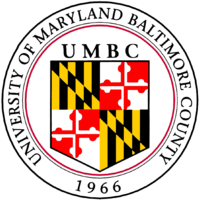 The University of Maryland Baltimore County School of Public Policy has partnered with the Association of Public Policy Analysis and Management (APPAM), a national organization that fosters excellence in research, analysis, and education in public policy. The two partners hosted a day-long public policy camp to connect with undergraduate and graduate students, particularly from underrepresented groups, who may not be exposed to public policy as field of study.
The University of Maryland Baltimore County School of Public Policy has partnered with the Association of Public Policy Analysis and Management (APPAM), a national organization that fosters excellence in research, analysis, and education in public policy. The two partners hosted a day-long public policy camp to connect with undergraduate and graduate students, particularly from underrepresented groups, who may not be exposed to public policy as field of study.
“We felt that UMBC was uniquely positioned to meet APPAM’s goals in helping to diversify the field because of UMBC’s strong, diverse student scholars, many of whom are first-generation or come from underrepresented groups,” said Jane Lincove, associate professor of public policy at the university.
The workshop was planned by Lincove and Susan Sterett, director of the School of Public Policy, who aimed to reach out to diverse students from across UMBC and the broader mid-Atlantic region. The event was attended by students from UMBC’s College of Engineering and Information Technology and the College of Natural and Mathematical Sciences, as well as students from other University System of Maryland schools, area HBCUs, local community colleges, and other universities such as Johns Hopkins, Temple, American, Virginia Commonwealth, and Columbia.
At the event, participants attended small group conversations and panel discussions led by public policy alumni, faculty, and doctoral students who shared how they have applied their skills to the field in diverse ways. Throughout the day, students also participated in interactive activities that introduced them to foundational public policy skills such as interviewing, active listening, conducting research, and budgeting. They also practiced implementing policy on two current Baltimore City issues: food deserts and lack of reliable heating in public schools.
“We need more women and people of different races [in the policy field]. That is the future,” said alumni participant Steve Sharkey, director of Baltimore’s Department of General Services. “Different perspectives are important for creating policy and to understanding community impact.”

